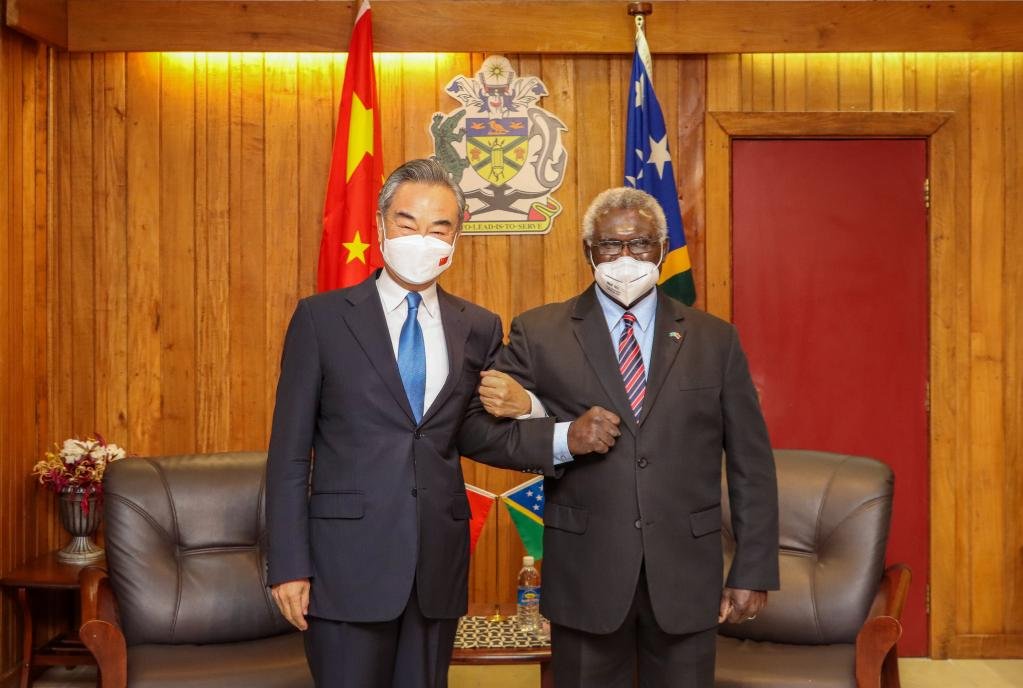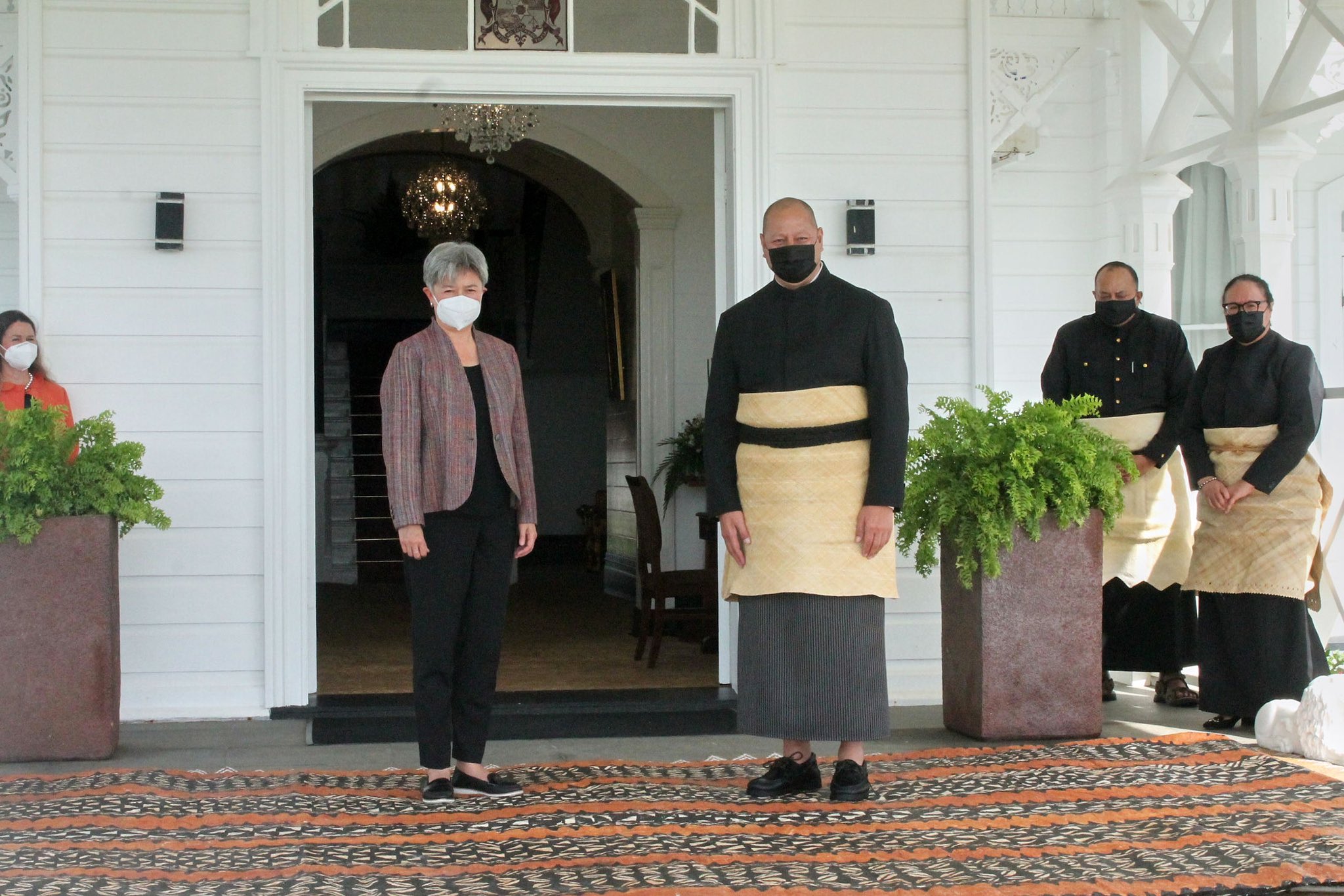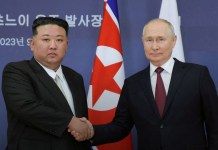In what seems like a move aimed at countering China’s expanding presence in the region, Australia signed a bilateral agreement on November 10 with Tuvalu, a tiny island state tucked away in the Southern Pacific.
Australian Prime Minister Anthony Albanese signed the agreement with his Tuvalu counterpart, Kausea Natano. It covers climate change, security, and people mobility, making Australia Tuvalu’s “partner of choice.”
Albanese said it was the most important agreement signed with a Pacific Island nation and gave “a guarantee that upon a request from Tuvalu for any military assistance based upon security issues, Australia will be there.”
The agreement will allow Australia to evaluate Tuvalu’s security arrangement with other countries at a time when China is making swift inroads into the Pacific. This means Australia will also get veto power over any potential security pact between China and Tuvalu as part of the historic deal.
Speaking at a press conference on the sidelines of Pacific leaders meeting in the Cook Islands, Anthony Albanese said, “Under the treaty, both countries commit to mutually agree to any partnership, arrangement, or engagement with any other state or entity on security and defense-related matters in Tuvalu.”
As part of this deal, Australia will grant a special visa to 280 Tuvaluans annually, representing 2.5 percent of the country’s 11,200 inhabitants. The Sydney Morning Herald said earlier on November 10 that if climate change renders Tuvalu uninhabitable, all 11,200 of its citizens will be given asylum in Australia.
However, the agreement’s exact wording has not yet been made public, and there was no mention of mass climate asylum in the government press statement issued after the treaty was signed.
BREAKING Australia, Tuvalu sign new treaty which could reshape Australia’s ties with small Pacific island states. Citizens from Tuvalu can gradually resettle in Australia via a visa stream- 280 a year. Australia has effective veto power over Tuvalu’s security arrangements https://t.co/eG7o9khsr7 pic.twitter.com/VBjKRKbpl9
— Stephen Dziedzic (@stephendziedzic) November 10, 2023
Located halfway between Australia and Hawaii, Tuvalu is a group of nine low-lying islands. It has been under the spotlight due to its vulnerability to climate change. Approximately 40 percent of the main island is submerged under the sea during unusually high tides. It is projected that tidal waves will flood half of Funafuti’s land area every day by 2050.
This is where Australia has seen an opening to make an entry. With the signing of the agreement with Australia, Tuvalu has gone beyond China’s reach, as Australia would have the power to vet any association that Tuvalu decides to have with Beijing.
While conceding that few other countries would go as far as Tuvalu by permitting Australia to sever future defense and security connections with other nations, the government thinks the pact might set the stage for similar agreements with other Pacific islands.
China has been courting Pacific island countries using the vast capital it can provide. China’s enormous financial resources and economic might have frequently caused large sums of money to flow into little but strategically essential nations. Should these nations default, China will gain influence in the area.
Critics have long accused it of being a “debt trap,” pointing primarily to Pakistan and Sri Lanka. There are worries that Beijing would employ a similar strategy in the Pacific, allowing it to establish military outposts there.
Australia has, thus, itself resorted to countering China’s economic influence by injecting its own money where its mouth is. As part of the recently signed agreement, Australia has pledged US$16.9 million to assist Tuvalu in expanding the main island’s landmass by six percent to help withstand the expected sea level rise.
For now, in a diplomatic tussle playing out between China and Australia in the wider Pacific region, Australia seems to have scored a point against its opponent.
The Tussle In The Pacific
The agreement with Tuvalu comes when China is expanding its economic and military presence in the Pacific, to Australia’s dismay, as the region has traditionally been the sphere of influence for Canberra.
Earlier, China stunned Australia as it signed a security agreement with Solomon Island, another Pacific Island Country just 2,000 kilometers from Australia.
The security agreement, signed in April last year, triggered concerns about a Chinese naval base coming up near Australia. China was also reportedly seeking similar security arrangements with other Pacific island states like Kiribati, causing more frenzy in Australia and the United States.
In addition, a Daily Mail Australia report dated July 3 warned that China was using its economic might on Australia’s Pacific neighbors. It stated that China had handed over US$30 million to get a special economic zone in the town of Kikori in Papua New Guinea’s Gulf Province off the ground and is desperate to invest more.

Tuvalu is one of only 13 countries that still maintain formal diplomatic ties with Taiwan and is known for turning China down in the past. Over the years, Taiwan lost two Pacific allies to Beijing, including the Solomon Islands and Kiribati.
Tuvalu is one of the few that have stuck with Taipei despite being aggressively pursued and courted by China. Australia recognized that while Tuvalu has chosen to favor Taiwan over China, it can swiftly change.
The Pacific region has emerged as a new battleground between China and Australia. After culminating a security agreement with Solomon’s Islands, China attempted to sign a regional trade and security pact with 10 Pacific Island countries with diplomatic relations. The pact was proposed after an aggressive outreach undertaken by Beijing. However, it did not go through due to opposition from some member(s).

As the Chinese Foreign Minister wrapped up a 10-day Pacific tour around that time, Australia’s newly-appointed Foreign Minister, Penny Wong, launched a diplomatic counter-offensive or a ‘Pacific blitz.‘ Wong visited three Pacific island nations less than two weeks after entering office, including Tonga, Fiji, and Samoa.
In a rebuttal to China’s economic and security partnership plan, Wong said in an interview with Australian public broadcaster ABC that Canberra would oppose China’s desire for security cooperation.
“We believe that regional security is the responsibility of the whole Pacific family, of which we are a part, and that’s the approach we’re taking, and that’s the approach that many Pacific island nations are reinforcing in their responses to us,” she said.
The agreement with Solomon Island served as a wake-up call for Australia, which, until then, hadn’t acknowledged that China’s Indo-Pacific assertiveness had arrived closer to its shores.
However, Canberra has since gone on its aggressive diplomatic outreach as it jostles against China to retain regional influence. Tuvalu is just one of the many that Canberra is likely trying to pull in its corner.
- Contact the author at sakshi.tiwari9555 (at) gmail.com
- Follow EurAsian Times on Google News




